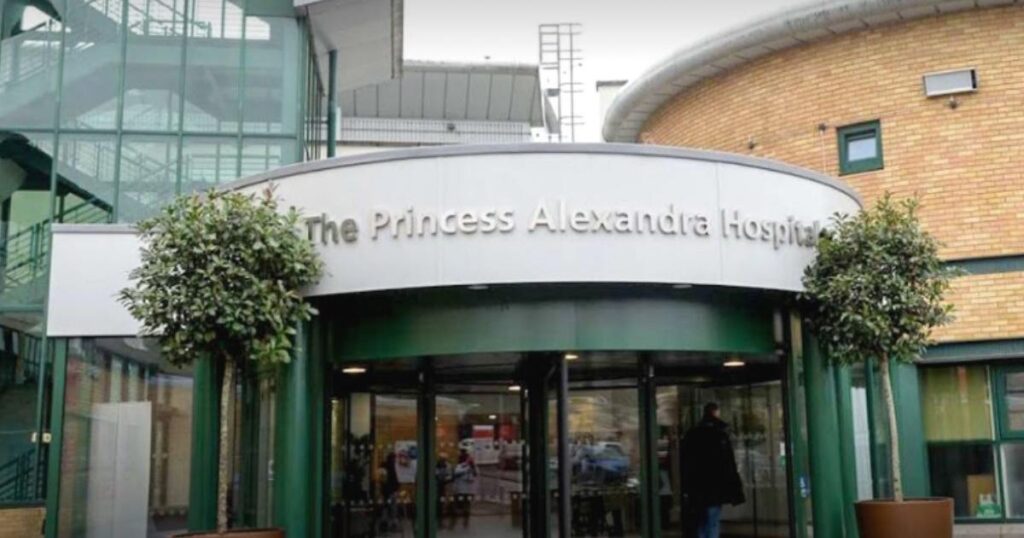Standards of maternity and neonatal care in the county were discussed at the first meeting of Hertfordshire County Council’s health scrutiny committee since the May council elections.
It comes as a national investigation into “systemic” failures in NHS maternity care was launched by the Government after families were “gaslit” in their search for the truth, the Health Secretary said.
A report prepared by Dr Caroline Zwierzchowska-Dod laid out Hertfordshire’s local maternity and neonatal system, which provides quality assurance to the three hospitals providing maternity services for the county – Lister Hospital in Stevenage, Watford General Hospital and Princess Alexandra Hospital in Harlow, Essex.
The report stated that the systems were established nationwide following a series of inspections by the Care Quality Commission (CQC) across 131 NHS trusts across the country from 2022 to 2024.
Just 4 per cent of trusts were rated as ‘outstanding’, 48 per cent ‘good’ and 18 per cent received the lowest rating of ‘inadequate’ – with maternity care highlighted as a risk across the board.
The report stated: “The safety of maternity services remains a key concern, with no services inspected as part of the CQC’s inspection programme rated as ‘outstanding’ for being safe.”
All three of Hertfordshire’s hospitals providing maternity services were required to make improvements following inspections by the CQC, with the Lister and Queen Alexandra Hospitals both placed on the Maternity Safety Support Programme.
Princess Alexandra Hospital
The Princess Alexandra Hospital NHS Trust entered the NHS England Maternity Safety Support Programme in 2020 following a CQC inspection.
The Princess Alexandra Hospital in Harlow
The service began a maternity improvement plan to improve maternity staffing, medical culture and maternity triage and governance. The trust is now said to be close to exiting the programme following these improvements.
Lister Hospital
An inspection of maternity services at Lister Hospital led to the trust being issued with a warning notice over patient safety. A follow-up visit in June 2023 found “significant improvements”, which were “acknowledged and received high praise”.
It added: “Positive changes to the environment, availability of equipment and improved facilities were acknowledged within the report.”
The Lister Hospital successfully exited the Maternity Safety Support Programme in May 2024, following an external review of the service.
Watford General Hospital

Watford General Hospital maternity services had a CQC inspection in October 2021. The ‘safe’ and ‘effective’ categories were rated as ‘requires improvement’ and as a result, the overall rating for the service was reduced from ‘good’ to ‘requires improvement’. A regional team later visited the trust and found they had “made great progress with their improvement journey”. After further discussion, it was decided the trust would not be placed on the Maternity Safety Support Programme.
The report stated there were three “top system risks within maternity and neonatal services”, which are:
⦁ Cross border care – where women give birth at a hospital away from their local catchment hospital. Risks include a lack of service user information across different trusts, different pathways, policies and procedures, the risk of missed care and poor maternity experience.
⦁ Electronic Patient Records, with each trust using a different system. There are issues with inter-operability, both between hospitals and between hospitals and primary care providers.
⦁ Community venues for midwifery care with GP surgeries are becoming unavailable for community midwifery appointments and clinics, or are charging significant fees.
Following a presentation in the chamber, Cllr Nigel Bell (Lab, West Watford) asked: “The question about each trust having a different electronic patient record system, you know, that’s the case. I’m worried about that, can you say more on that?
“Obviously you said the impact is that there’s issues with the inoperability between systems… if you could comment on the risks a bit more maybe on the electronic patient record systems being different in the three trusts?”
In response, Dr Zwierzchowska-Dod said: “To be clear, this is a national issue. Each hospital trust procures their own IT system so this is not a localised problem. Unfortunately, this is replicated in almost all areas of the country.
“However, Hertfordshire and West Essex ICB are actually moving ahead with something called our Cross Border Care Project and I’ve recently been asked to speak to the East of England region around the work that we’re actually doing to make things safer for women and babies.
“One of these is involving what’s called a Shared Care Record. So, this is another IT system but it’s one in which each of the hospital IT systems is able to feed into. There are GDPR or data agreements with this system so that certain data can be fed through to it.”
Dr Zwierzchowska-Dod said that midwives and obstetricians currently have “one-time access” to patient records from other hospitals for limited periods, but the new Shared Care Record system would have “more longevity” thanks to a data agreement. It will apply not just to maternity services but across patient care.




